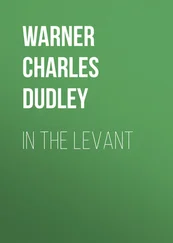Charles Warner - The Gilded Age / A tale of today
Здесь есть возможность читать онлайн «Charles Warner - The Gilded Age / A tale of today» весь текст электронной книги совершенно бесплатно (целиком полную версию без сокращений). В некоторых случаях можно слушать аудио, скачать через торрент в формате fb2 и присутствует краткое содержание. Год выпуска: 2004, Жанр: Классическая проза, на английском языке. Описание произведения, (предисловие) а так же отзывы посетителей доступны на портале библиотеки ЛибКат.
- Название:The Gilded Age / A tale of today
- Автор:
- Жанр:
- Год:2004
- ISBN:нет данных
- Рейтинг книги:3 / 5. Голосов: 1
-
Избранное:Добавить в избранное
- Отзывы:
-
Ваша оценка:
- 60
- 1
- 2
- 3
- 4
- 5
The Gilded Age / A tale of today: краткое содержание, описание и аннотация
Предлагаем к чтению аннотацию, описание, краткое содержание или предисловие (зависит от того, что написал сам автор книги «The Gilded Age / A tale of today»). Если вы не нашли необходимую информацию о книге — напишите в комментариях, мы постараемся отыскать её.
The Gilded Age / A tale of today — читать онлайн бесплатно полную книгу (весь текст) целиком
Ниже представлен текст книги, разбитый по страницам. Система сохранения места последней прочитанной страницы, позволяет с удобством читать онлайн бесплатно книгу «The Gilded Age / A tale of today», без необходимости каждый раз заново искать на чём Вы остановились. Поставьте закладку, и сможете в любой момент перейти на страницу, на которой закончили чтение.
Интервал:
Закладка:
It was fruitless. But all day he and his wife made inquiries, and hoped against hope. All that they could learn was that the child and her parents came on board at New Orleans, where they had just arrived in a vessel from Cuba; that they looked like people from the Atlantic States; that the family name was Van Brunt and the child's name Laura. This was all. The parents had not been seen since the explosion. The child's manners were those of a little lady, and her clothes were daintier and finer than any Mrs. Hawkins had ever seen before.
As the hours dragged on the child lost heart, and cried so piteously for her mother that it seemed to the Hawkinses that the moanings and the wailings of the mutilated men and women in the saloon did not so strain at their heart-strings as the sufferings of this little desolate creature. They tried hard to comfort her; and in trying, learned to love her; they could not help it, seeing how she clung, to them and put her arms about their necks and found no solace but in their kind eyes and comforting words: There was a question in both their hearts—a question that rose up and asserted itself with more and more pertinacity as the hours wore on—but both hesitated to give it voice—both kept silence—and—waited. But a time came at last when the matter would bear delay no longer. The boat had landed, and the dead and the wounded were being conveyed to the shore. The tired child was asleep in the arms of Mrs. Hawkins. Mr. Hawkins came into their presence and stood without speaking. His eyes met his wife's; then both looked at the child—and as they looked it stirred in its sleep and nestled closer; an expression of contentment and peace settled upon its face that touched the mother-heart; and when the eyes of husband and wife met again, the question was asked and answered.
When the Boreas had journeyed some four hundred miles from the time the Hawkinses joined her, a long rank of steamboats was sighted, packed side by side at a wharf like sardines, in a box, and above and beyond them rose the domes and steeples and general architectural confusion of a city—a city with an imposing umbrella of black smoke spread over it. This was St. Louis. The children of the Hawkins family were playing about the hurricane deck, and the father and mother were sitting in the lee of the pilot house essaying to keep order and not greatly grieved that they were not succeeding.
"They're worth all the trouble they are, Nancy."
"Yes, and more, Si."
"I believe you! You wouldn't sell one of them at a good round figure?"
"Not for all the money in the bank, Si."
"My own sentiments every time. It is true we are not rich—but still you are not sorry—-you haven't any misgivings about the additions?"
"No. God will provide"
"Amen. And so you wouldn't even part with Clay? Or Laura!"
"Not for anything in the world. I love them just the same as I love my own: They pet me and spoil me even more than the others do, I think. I reckon we'll get along, Si."
"Oh yes, it will all come out right, old mother. I wouldn't be afraid to adopt a thousand children if I wanted to, for there's that Tennessee Land, you know—enough to make an army of them rich. A whole army, Nancy! You and I will never see the day, but these little chaps will. Indeed they will. One of these days it will be the rich Miss Emily Hawkins—and the wealthy Miss Laura Van Brunt Hawkins—and the Hon. George Washington Hawkins, millionaire—and Gov. Henry Clay Hawkins, millionaire! That is the way the world will word it! Don't let's ever fret about the children, Nancy—never in the world. They're all right. Nancy, there's oceans and oceans of money in that land—mark my words!"
The children had stopped playing, for the moment, and drawn near to listen. Hawkins said:
"Washington, my boy, what will you do when you get to be one of the richest men in the world?"
"I don't know, father. Sometimes I think I'll have a balloon and go up in the air; and sometimes I think I'll have ever so many books; and sometimes I think I'll have ever so many weathercocks and water-wheels; or have a machine like that one you and Colonel Sellers bought; and sometimes I think I'll have—well, somehow I don't know—somehow I ain't certain; maybe I'll get a steamboat first."
"The same old chap!—always just a little bit divided about things.—And what will you do when you get to be one of the richest men in the world, Clay?"
"I don't know, sir. My mother—my other mother that's gone away—she always told me to work along and not be much expecting to get rich, and then I wouldn't be disappointed if I didn't get rich. And so I reckon it's better for me to wait till I get rich, and then by that time maybe I'll know what I'll want—but I don't now, sir."
"Careful old head!—Governor Henry Clay Hawkins!—that's what you'll be, Clay, one of these days. Wise old head! weighty old head! Go on, now, and play—all of you. It's a prime lot, Nancy; as the Obedstown folk say about their hogs."
A smaller steamboat received the Hawkinses and their fortunes, and bore them a hundred and thirty miles still higher up the Mississippi, and landed them at a little tumble-down village on the Missouri shore in the twilight of a mellow October day.
The next morning they harnessed up their team and for two days they wended slowly into the interior through almost roadless and uninhabited forest solitudes. And when for the last time they pitched their tents, metaphorically speaking, it was at the goal of their hopes, their new home.
By the muddy roadside stood a new log cabin, one story high—the store; clustered in the neighborhood were ten or twelve more cabins, some new, some old.
In the sad light of the departing day the place looked homeless enough. Two or three coatless young men sat in front of the store on a dry-goods box, and whittled it with their knives, kicked it with their vast boots, and shot tobacco-juice at various marks. Several ragged negroes leaned comfortably against the posts of the awning and contemplated the arrival of the wayfarers with lazy curiosity. All these people presently managed to drag themselves to the vicinity of the Hawkins' wagon, and there they took up permanent positions, hands in pockets and resting on one leg; and thus anchored they proceeded to look and enjoy. Vagrant dogs came wagging around and making inquiries of Hawkins's dog, which were not satisfactory and they made war on him in concert. This would have interested the citizens but it was too many on one to amount to anything as a fight, and so they commanded the peace and the foreign dog coiled his tail and took sanctuary under the wagon. Slatternly negro girls and women slouched along with pails deftly balanced on their heads, and joined the group and stared. Little half dressed white boys, and little negro boys with nothing whatever on but tow-linen shirts with a fine southern exposure, came from various directions and stood with their hands locked together behind them and aided in the inspection. The rest of the population were laying down their employments and getting ready to come, when a man burst through the assemblage and seized the new-comers by the hands in a frenzy of welcome, and exclaimed—indeed almost shouted:
"Well who could have believed it! Now is it you sure enough—turn around! hold up your heads! I want to look at you good! Well, well, well, it does seem most too good to be true, I declare! Lord, I'm so glad to see you! Does a body's whole soul good to look at you! Shake hands again! Keep on shaking hands! Goodness gracious alive. What will my wife say?—Oh yes indeed, it's so!—married only last week—lovely, perfectly lovely creature, the noblest woman that ever—you'll like her, Nancy! Like her? Lord bless me you'll love her—you'll dote on her—you'll be twins! Well, well, well, let me look at you again! Same old—why bless my life it was only jest this very morning that my wife says, 'Colonel'—she will call me Colonel spite of everything I can do—she says 'Colonel, something tells me somebody's coming!' and sure enough here you are, the last people on earth a body could have expected. Why she'll think she's a prophetess—and hanged if I don't think so too—and you know there ain't any country but what a prophet's an honor to, as the proverb says. Lord bless me and here's the children, too! Washington, Emily, don't you know me? Come, give us a kiss. Won't I fix you, though!—ponies, cows, dogs, everything you can think of that'll delight a child's heart—and—Why how's this? Little strangers? Well you won't be any strangers here, I can tell you. Bless your souls we'll make you think you never was at home before—'deed and 'deed we will, I can tell you! Come, now, bundle right along with me. You can't glorify any hearth stone but mine in this camp, you know—can't eat anybody's bread but mine—can't do anything but just make yourselves perfectly at home and comfortable, and spread yourselves out and rest! You hear me! Here—Jim, Tom, Pete, Jake, fly around! Take that team to my place—put the wagon in my lot—put the horses under the shed, and get out hay and oats and fill them up! Ain't any hay and oats? Well get some—have it charged to me—come, spin around, now! Now, Hawkins, the procession's ready; mark time, by the left flank, forward-march!"
Читать дальшеИнтервал:
Закладка:
Похожие книги на «The Gilded Age / A tale of today»
Представляем Вашему вниманию похожие книги на «The Gilded Age / A tale of today» списком для выбора. Мы отобрали схожую по названию и смыслу литературу в надежде предоставить читателям больше вариантов отыскать новые, интересные, ещё непрочитанные произведения.
Обсуждение, отзывы о книге «The Gilded Age / A tale of today» и просто собственные мнения читателей. Оставьте ваши комментарии, напишите, что Вы думаете о произведении, его смысле или главных героях. Укажите что конкретно понравилось, а что нет, и почему Вы так считаете.












